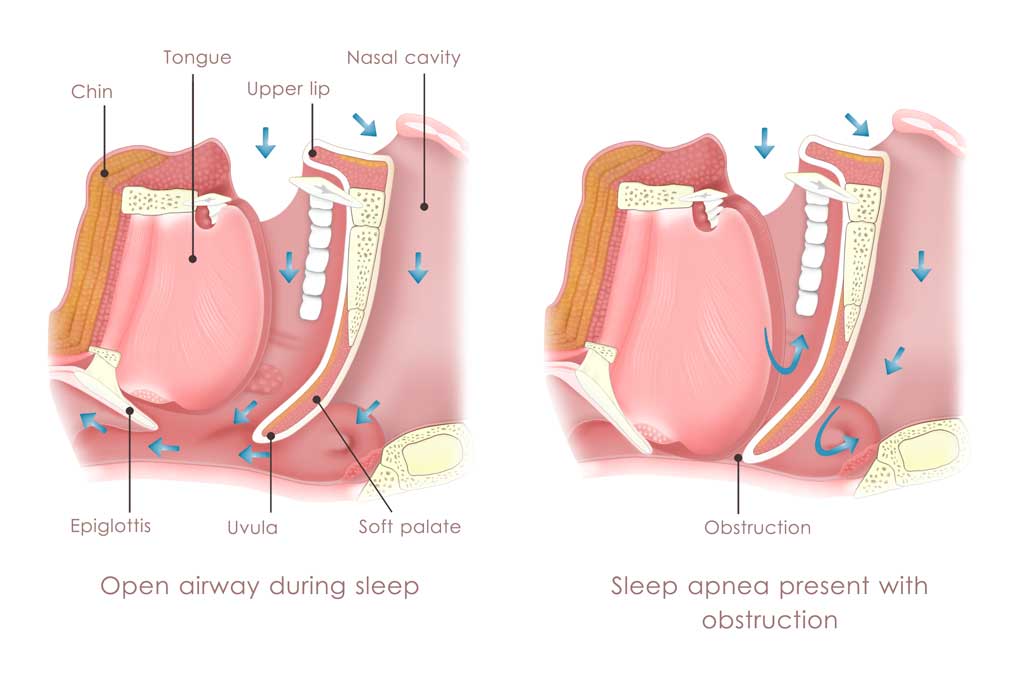Home » Obstructive Sleep Apnea

Individuals with OSA may experience the following symptoms:


OSA occurs when the muscles in the mouth, soft palate, tonsils and tongue relax, blocking airflow and disrupting breathing for 10 seconds or longer. This may cause decreased blood oxygen levels and a buildup of carbon dioxide.
The brain senses this impaired breathing and rouses the individual from sleep so that they can reopen the airway. The awakenings are very brief and usually not remembered. The individual may wake up with a snorting, choking or gasping sound anywhere from five to 30 times per hour, all night long. These awakenings keep the individual from reaching deep sleep and obtaining the rest they need to function normally during the day.
Many individuals with OSA are unaware that their sleep was interrupted and may think that they slept soundly during the night.
Obstructive sleep apnea may lead to the following complications:.